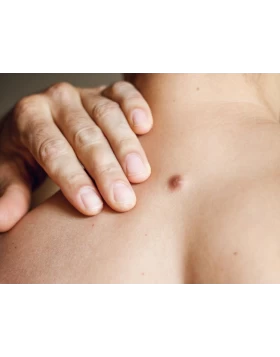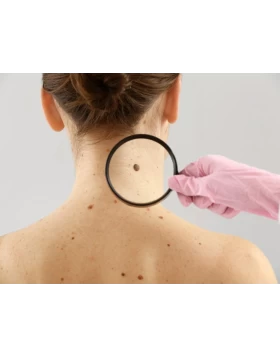Decubitus - chronic ulcers
Decubitus ulcers, commonly known as bedsores or pressure ulcers, refer to skin lesions that develop due to prolonged pressure on specific areas of the body. These chronic ulcers usually occur in people with limited mobility, such as those who are bedridden or use a wheelchair. Constant pressure disrupts blood flow, leading to tissue damage. Bed ulcers often affect bony prominences such as the hips, heels, and sacrum. Prevention includes repositioning, proper cushioning and maintaining skin hygiene. Treatment focuses on caring for the wound, preventing infection, and addressing contributing factors. Early intervention is vital to prevent complications and promote healing in people at risk for decubitus ulcers. At Geoderma Clinic, we treat chronic ulcers and decubitus ulcers conservatively or surgically, depending on the needs of each patient.

Do you have additional questions about the service?
What are the stages of decubitus ulcers?
Decubitus ulcers are categorized into stages, ranging from mild redness of the skin (stage 1) to severe tissue damage with full-thickness necrosis of the skin (stage 4).
Can decubitus ulcers completely be healed?
With proper care, many decubitus ulcers can be healed completely. However, the extent of healing depends on factors such as the stage of the ulcer and the person's overall health.
What should I do if I notice signs of a decubitus ulcer?
Get medical help immediately. Early intervention can prevent ulcers from progressing and improve the chances of successful treatment.


 Ελληνικά
Ελληνικά

